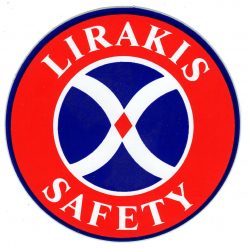This is a story I have been interested in particularly given that Newport RI was the supposed runner up to host the America’s Cup. I wrote then: Be careful what you wish for. Newport never had and could never find the resources potentially available to San Francisco. It was clear even at the beginning that San Francisco would have an uphill battle. While from a viewing point of view, it is a great venue; from a logistical position, not so much. Tide is a huge factor. Sailing in the commercial traffic channel another potential problem.
The America’s Cup has it’s own issues with a number of teams withdrawing from the competition. I am not saying that the event will not take place, but the timeline may even be altered. there is a lot to accomplish. so far it is mostly a discussion.
Published on San Francisco Examiner (http://www.sfexaminer.com)
Home > America’s Cup short of cash for planning 2013 regatta
America’s Cup short of cash for planning 2013 regatta
The America’s Cup is supposed to provide a huge boost for the local economy while coming at no cost to taxpayers.
America’s Cup organizers have netted only a fraction of the funds The City needs this year to plan the massive 2013 yacht race, but officials said as soon as they receive their tax-exempt status, the money will start flowing.
If it doesn’t, San Francisco taxpayers will be on the hook.
Some $12 million is budgeted in the coming fiscal year for the Mayor’s Office of Economic and Workforce Development to conduct environmental planning and get necessary state and federal permits. Yet the nonprofit responsible for offsetting The City’s $32 million in costs has only $2 million on hand to mitigate the bill.
If the America’s Cup Organizing Committee can’t come up with the other $10 million, it would have to come from San Francisco’s general fund, which is dedicated to basic city services such as police, fire protection and road construction.
A big selling point of the America’s Cup was that it would provide a huge boost for the local economy while presumably coming at no cost to taxpayers.
San Francisco voters have traditionally resisted backing private endeavors with public money, including the rejection of two proposals in the late ’80s for taxpayer money to fund a new waterfront stadium for the Giants.
Under new ownership in 1995, the team announced it would build the first privately financed ballpark since Dodger Stadium went up in 1962.
Voters narrowly approved two 1997 measures that allowed San Francisco to borrow money to rezone and develop the area around Candlestick Park, but The City never moved forward with its $100 million in bonding permission.
Kyri McClellan, executive director of the America’s Cup Organizing Committee, said the tax-exempt approval is expected in August. After that, she predicted, donors will become more comfortable writing seven-figure checks and the committee should raise the remaining millions by October or November, when final impact reports are filed under the California Environmental Quality Act.
“I have every confidence we will meet our obligations in the host-city agreement,” McClellan said, adding that after this year’s $12 million goal, the committee would raise the additional $20 million over the next two years.
The America’s Cup money came into question last week at the Board of Supervisors Government Audit and Oversight Committee during an informational presentation by Mayor Ed Lee’s staff. Supervisor David Campos said later that the committee should be following the money and making sure the entire city has a chance to hear about logistics and impacts of the event.
Most of the 35 or so informational presentations about the America’s Cup “people plan” have been limited to The City’s eastern and northern shores, where the event will be focused. Hundreds of thousands of spectators are expected to watch the races.
“I think we can do a better job … this belongs to all of San Francisco,” Campos said. “The City doesn’t have money right now, which is why we need to make sure this is done right.”
A Board of Supervisors Budget and Finance Committee hearing on America’s Cup funding is set for June 20.
Costs and benefits
$300 million Projected cost for race
$32 million Cost to The City (to be raised by America’s Cup Organizing Committee nonprofit)
$270 million Remaining cost (to be paid by corporate sponsorships and broadcast rights)
$1.4 billion Estimated economic benefits for The City
8,000 Jobs created
Source: Mayor’s Office of Economic and Workforce Development
